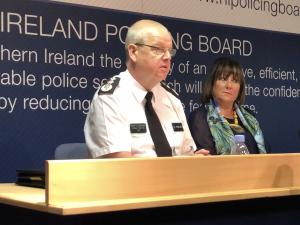
By Rebecca Black and David Young, PA
Northern Ireland's Chief Constable has stood over the handling of a large demonstration in Belfast over the death of George Floyd.
Public health concerns have been expressed after thousands gathered in Belfast city centre on Wednesday to express their outrage at the death of Mr Floyd in police custody in the US last week.
People were packed tightly together at the centre of the City Hall protest, with others observing social distancing at the fringes of the rally.
The Police Service of Northern Ireland (PSNI) maintained a low-key presence at the event, with officers observing from a distance.
Chief Inspector Gavin Kirkpatrick said officers had engaged with the organiser before and during the event and maintained a presence throughout.
PSNI Chief Constable Simon Byrne tweeted on Thursday morning that public protests at this time amid the pandemic "will endanger lives".
When he later appeared before the Northern Ireland Policing Board, he stood over the police response.
PSNI @ChiefConPSNI says he was "appalled" to see events in the US and actions of police officer, which he says he can't condone.
— Q Radio News (@qnewsdesk) June 4, 2020
However, Simon Byrne says equally, people protesting need to do so responsibly as we're still battling covid-19.
"We have been asked questions about our approach yesterday but I think we also need to ask ourselves as a society in the community, what do people want from us and what was an acceptable outcome to yesterday because it's easy to get emotive about a response to the restrictions on governments but remembering also that was largely a peaceful protest, there were no arrests made," he said.
"And so what would be proportionate in terms of our response to then conduct a post event investigation or indeed seek to disperse that protest when ironically it was about an outcry in relation to police use of force and brutality.
"So we had to as ever, balance, a number of competing considerations when we supported the organisers yesterday who I don't think expected as many people to turn up.
"We did have dialogue, we were able to facilitate something that we all cherish - that opportunity to cry out when something offends us - and we're going to work with the organisers again in relation to the protest that is now planned for Saturday."
He added: "Sometimes it's getting that fine line right because what to one person is strong enforcement and being robust to other people is aggressive and oppressive, and it's difficult to make these decisions real time."
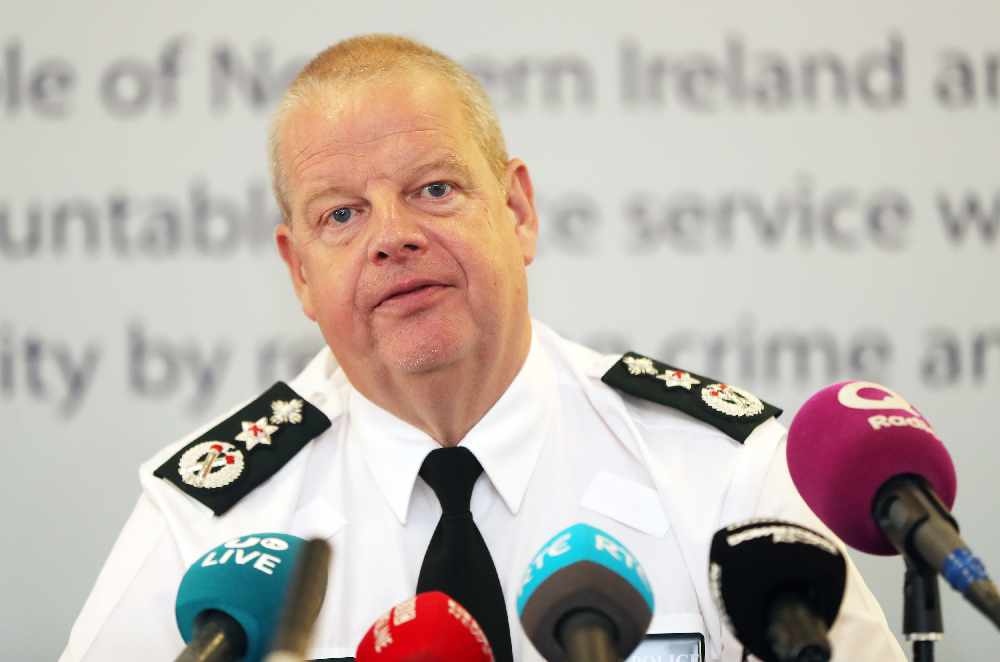
Assistant Chief Constable Alan Todd said the approach to policing the next planned protest on Saturday is being developed.
"We'll start to develop a plan tomorrow for any events that may or may not take on Saturday," he told the Policing Board.
"We note and share the public health concerns that arise out of those events.
"I would fully accept that through various lens policing often gets accused of an inconsistent approach and that is an inevitable consequence of what you ask us to do which is to police every set to circumstances on its own merits."
Earlier the Public Health Agency's head of health protection Dr Gerry Waldron warned public gatherings increased the risk to the population from coronavirus.
"We've got to bear in mind that the virus hasn't got any conscience and ... doesn't recognise good causes," he told the BBC.
"Unfortunately, people that congregate in large groups, even if they're trying to maintain social distancing, put themselves and others in that group at risk."
Justice Minister Naomi Long said she is in sympathy with the cause of the demonstration but said public protests in a pandemic were "reckless and could endanger lives".
Jolene Francis, who helped to organise the Belfast rally, defended the gathering, pointing out that many were wearing masks and using sanitisers.
"I would say that racial injustice and discrimination have been a health crisis since the beginning of time, and while I understand where the people are coming from, the government advice has also advised people to behave at their discretion, and that is also the message we pushed, to come down and act responsibly," she told the BBC.
"If you look at the pictures, if there are groups of people that were gathered, those are people that came together.
"Towards the back of the protest there were people spread out.
"I agree at the epicentre of the protest there were people gathered together, those people were wearing masks, they were using sanitisers, those people were incredibly emotionally charged.
"These are people who feel racial discrimination and injustice every single day."


 Swann refuses to rule out resigning if budget is not changed
Swann refuses to rule out resigning if budget is not changed
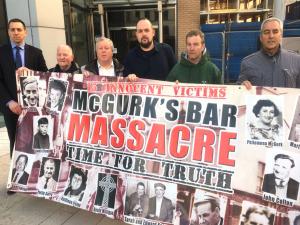 Fresh inquests ordered into deaths of 15 killed in McGurk’s bomb blast
Fresh inquests ordered into deaths of 15 killed in McGurk’s bomb blast
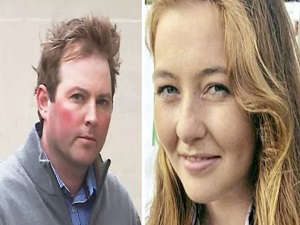 Trial ends after man accused of murder of young showjumper is found dead
Trial ends after man accused of murder of young showjumper is found dead
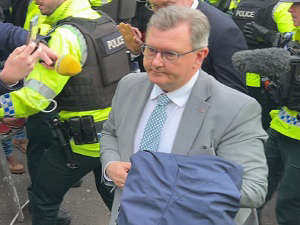 A brief hearing and chaotic scenes as Donaldson makes first court appearance
A brief hearing and chaotic scenes as Donaldson makes first court appearance